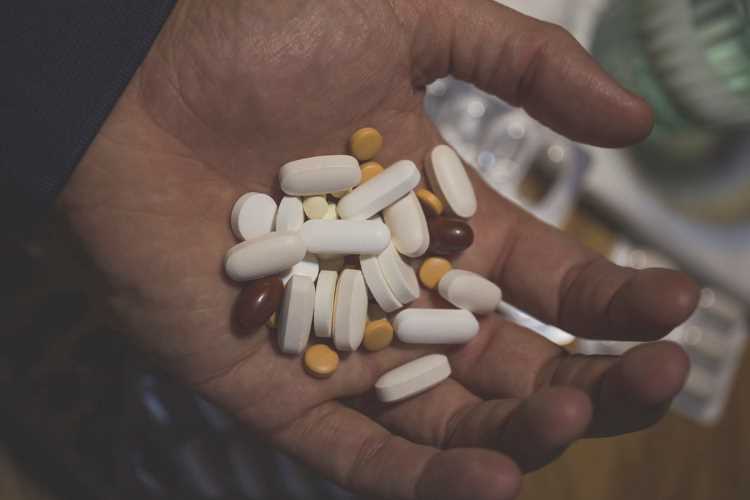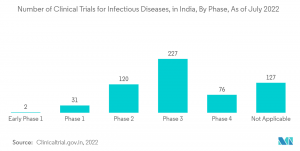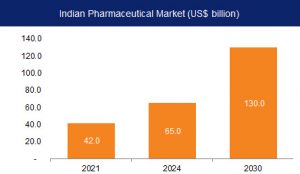
India is a global pharmaceuticals hub and exports medicines to more than 200 nations. It has already developed a research and development ecosystem that could help it become a true-blue pharma industry giant in the next few years. The first half of the financial year 2022–23 saw a 25% increase in foreign direct investment inflows into the pharma industry. The FDI infusion into surgical and medical equipment manufacturing rose by about 1.5 times in the first half of the financial year, compared with the previous year. FDI into hospitals and diagnostic centres increased by 44%. The department of pharmaceuticals has cleared 21 FDI bids totalling Rs 4,681 crore in brownfield projects between January and November 2022.
This year, there was increased industry-government cooperation with both sides contributing significantly to the efforts to improve India’s share in the international market. The government launched the Product Linked Incentive (PLI) scheme for the pharma industry in 2022 in response to the disruptions caused by the pandemic and the increased domestic production capacity for essential drugs. By boosting investment, manufacturing output, and product diversification, the PLI scheme is expected to improve India’s global standing.
ALSO READ | Old pension scheme unsustainable, NPS makes sense for debt-laden states
The Indian pharma industry supplies low-cost, high-quality medications to the rest of the world. Scientific advancements happen quickly in this knowledge industry which is based on scientific research. According to government forecasts, the industry will increase in value from the current $50 billion to $130 billion by 2030 and $450 billion by 2047.
The potential in Indian pharma industry
The world economy is facing geopolitical tensions, increasing inflation, and an imminent global recession. The Union Budget 2023–24 is being presented in this backdrop. Despite the unknowns, the Indian pharmaceutical industry expects a robust 2023. By the year 2030, the Indian pharma industry is expected to grow exponentially because of a large number of patent applications that are being accepted. It is anticipated that the international market for pharmaceutical products would touch $1 trillion this year.
Number of clinical trials for infectious diseases, in India, by phase, as of July 2022

The PLI scheme as well as the scheme for the promotion of bulk drug parks are just a couple of measures the government has implemented to strengthen the industry. Considering Indian economy’s resilience in the face of global headwinds, it is anticipated that this year’s budget will include plans for supporting the infrastructure of the pharma industry via central funding as well as tax incentives. Price control and customs duty on medical devices will continue to concern the healthcare sector in 2023. In order to touch $130 billion, the Indian pharmaceutical industry must continue to improve its production capabilities while harmonising regulatory measures to meet international standards.
Indian pharma market (in US $ billion)

ALSO READ | Online gaming: Regulation must inspire confidence among stakeholders
Given the huge increase in non-communicable diseases, preventative healthcare is likely to receive attention in budget 2023, which is to be presented by Union Finance Minister Nirmala Sitharaman on February 1, 2023. Government subsidies and incentives for cost-intensive research are also expected. It is necessary to provide incentives to domestic API makers and to reduce GST and import tariff on APIs. It is anticipated that the government will support initiatives aimed at improving ease of doing business which will boost investment and promote long-term development of the sector.
The Budget for the financial year 2023–2024 must continue to put emphasis on bolstering the healthcare industry’s infrastructure and change course to support pharmaceuticals which are made in India in order to make the nation really self-reliant.
The pharma industry is hopeful about the upcoming Union Budget 2023. The industry expects the budget to bring about a balanced combination of improvements as well as regulations which would in turn strengthen the sector and help India’s growth.
(Arvind Sharma is partner at Shardul Amarchand Mangaldas, a leading Indian law firm.)

